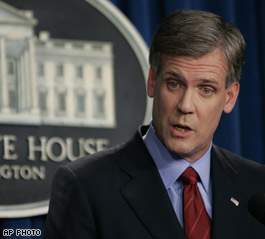Editorial Writer Doesn’t Know Much About Subject
Dave Shuler reads a NYT editorial cautioning us to avoid a trade war with China lest it jack up the cost of airplanes and concludes “the editorial writer has no idea of what the Chinese produce, what we buy from the Chinese, or what goes into a modern aircraft.” And he can’t do math, either.
The only surprising thing about this is that Dave is surprised. Don Snow, my dissertation director and a one who worked briefly as a journalist before grad school, often noted that, to a journalist, an “expert” is anyone who knows more about a given subject than he does. Which, Snow pointed out, was usually a very long list. This partly explains why talking people who will reliably return their phone calls are often quoted on topics far outside their legitimate expertise.
Likely, the editorial writer in question overheard a conversation somewhere from an “expert” and found a few quotes to back up the idea he was advancing. With no real understanding of his subject, which is after all pretty complicated, it’s not hard to go astray and yet have no clue that you’re doing so. And, certainly, none of the other editors were likely to know more about the topic.





Hehe, never stopped most of us, and its the NYT I thought that was given.
I wasn’t surprised; I was nettled.
There was the patronizing tone of the editorial. But there was also this. Imagine that a store down the street is issued a citation for health violations. Further imagine a defense launched on the grounds that the milk the store sells is good for the children in the neighborhood. Only the store doesn’t sell milk.
Defenses must be rooted in facts or principles or either whatever value they have is a coincidence or they’re nonsense.
Dave seems to be absolutely right on this particular point.
But, as I read the article, the line about Boeing seemed to be a throwaway line, an example pulled up to illustrate a larger point.
Bad example, no doubt. But what about the real issue being discussed?
It would seem to be silly to trash an editorial that makes a solid point simply because the writer used a bad example. It would also seem silly to criticize a bad editorial because of the example they used, rather than the weakness of the overall argument.
So what do y’all think of the argument?
In regards to James’ thoughts on the media and “experts”–it has certainly been my personal experience that reporters are often desperate for quick and easy research by calling whomever they can think of.
Note, Tano, that I supported the general point of the editorial and said so in my post. I just found it irritating that the editorial writer would have so little understanding of U. S-China trade.